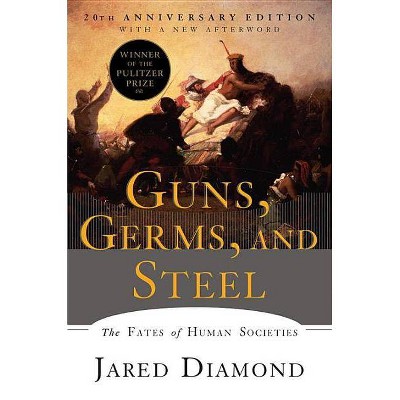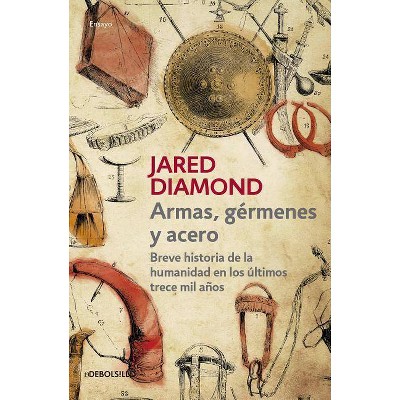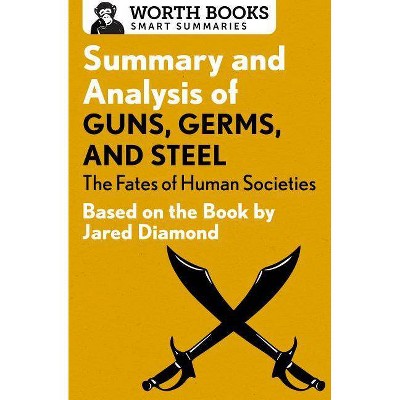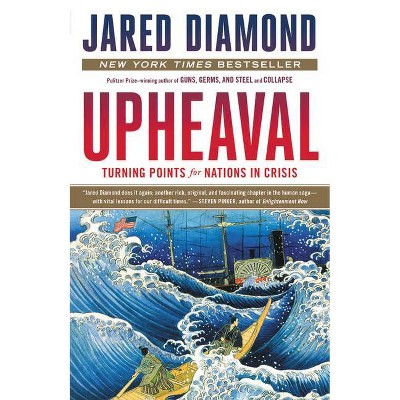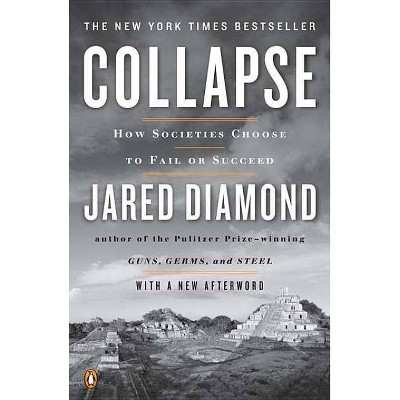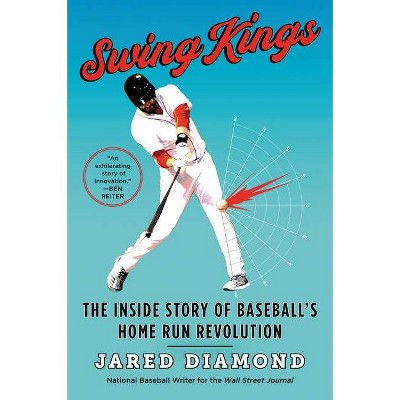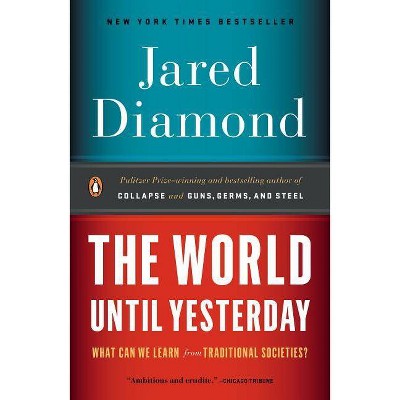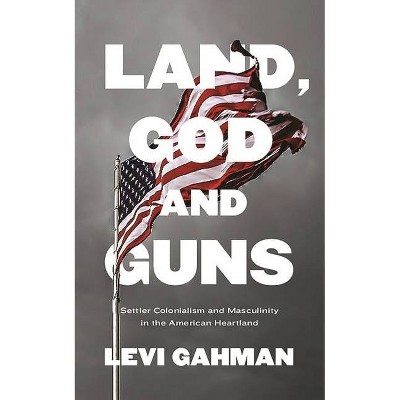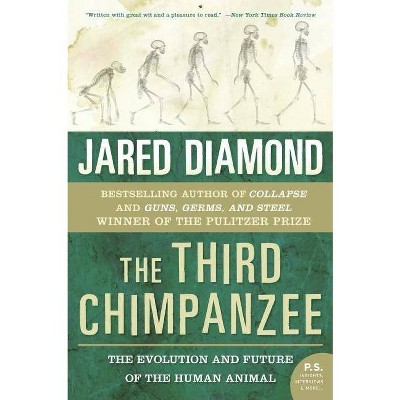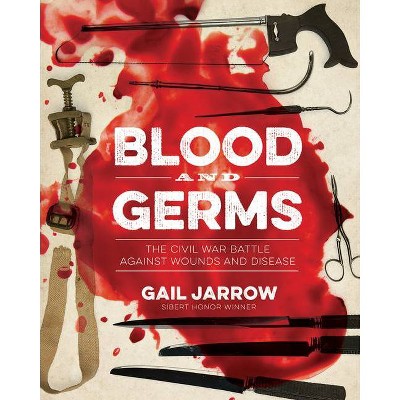Guns, Germs, and Steel - by Jared Diamond (Hardcover)
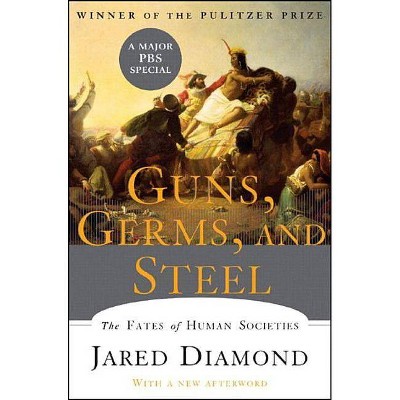
Similar Products
Products of same category from the store
AllProduct info
<p/><br></br><p><b> About the Book </b></p></br></br><p>Fascinating.... Lays a foundation for understanding human history.--Bill Gates</p><p/><br></br><p><b> Book Synopsis </b></p></br></br>Winner of the Pulitzer Prize, <em>Guns, Germs, and Steel</em> is a brilliant work answering the question of why the peoples of certain continents succeeded in invading other continents and conquering or displacing their peoples. This edition includes a new chapter on Japan and all-new illustrations drawn from the television series. Until around 11,000 BC, all peoples were still Stone Age hunter/gatherers. At that point, a great divide occurred in the rates that human societies evolved. In Eurasia, parts of the Americas, and Africa, farming became the prevailing mode of existence when indigenous wild plants and animals were domesticated by prehistoric planters and herders. As Jared Diamond vividly reveals, the very people who gained a head start in producing food would collide with preliterate cultures, shaping the modern world through conquest, displacement, and genocide.The paths that lead from scattered centers of food to broad bands of settlement had a great deal to do with climate and geography. But how did differences in societies arise? Why weren't native Australians, Americans, or Africans the ones to colonize Europe? Diamond dismantles pernicious racial theories tracing societal differences to biological differences. He assembles convincing evidence linking germs to domestication of animals, germs that Eurasians then spread in epidemic proportions in their voyages of discovery. In its sweep, <em>Guns, Germs and Steel</em> encompasses the rise of agriculture, technology, writing, government, and religion, providing a unifying theory of human history as intriguing as the histories of dinosaurs and glaciers.<p/><br></br><p><b> Review Quotes </b></p></br></br><br>[Diamond] is broadly erudite, writes in a style that pleasantly expresses scientific concepts in vernacular American English, and deals almost exclusively in questions that should interest everyone concerned about how humanity has developed. . . . [He] has done us all a great favor by supplying a rock-solid alternative to the racist answer. . . . A wonderfully interesting book.--Alfred W. Crosby "Los Angeles Times"<br><br>A book of remarkable scope, a history of the world in less than 500 pages which succeeds admirably, where so many others have failed, in analyzing some of the basic workings of culture process.... One of the most important and readable works on the human past published in recent years.--Colin Renfrew "Nature"<br><br>An ambitious, highly important book.--James Shreeve "New York Times Book Review"<br><br>An epochal work. Diamond has written a summary of human history that can be accounted, for the time being, as Darwinian in its authority.--Thomas M. Disch "The New Leader"<br><br>Artful, informative, and delightful.... There is nothing like a radically new angle of vision for bringing out unsuspected dimensions of a subject, and that is what Jared Diamond has done.--William H. McNeil "New York Review of Books"<br><br>No scientist brings more experience from the laboratory and field, none thinks more deeply about social issues or addresses them with greater clarity, than Jared Diamond as illustrated by <em>Guns, Germs, and Steel</em>. In this remarkably readable book he shows how history and biology can enrich one another to produce a deeper understanding of the human condition.--Edward O. Wilson, Pellegrino University Professor, Harvard University<br><br>Serious, groundbreaking biological studies of human history only seem to come along once every generation or so. . . . Now [<em>Guns, Germs, and Steel</em>] must be added to their select number. . . . Diamond meshes technological mastery with historical sweep, anecdotal delight with broad conceptual vision, and command of sources with creative leaps. No finer work of its kind has been published this year, or for many past.--Martin Sieff "Washington Times"<br><br>The scope and the explanatory power of this book are astounding.-- "The New Yorker"<br>
Price History
Price Archive shows prices from various stores, lets you see history and find the cheapest. There is no actual sale on the website. For all support, inquiry and suggestion messagescommunication@pricearchive.us
